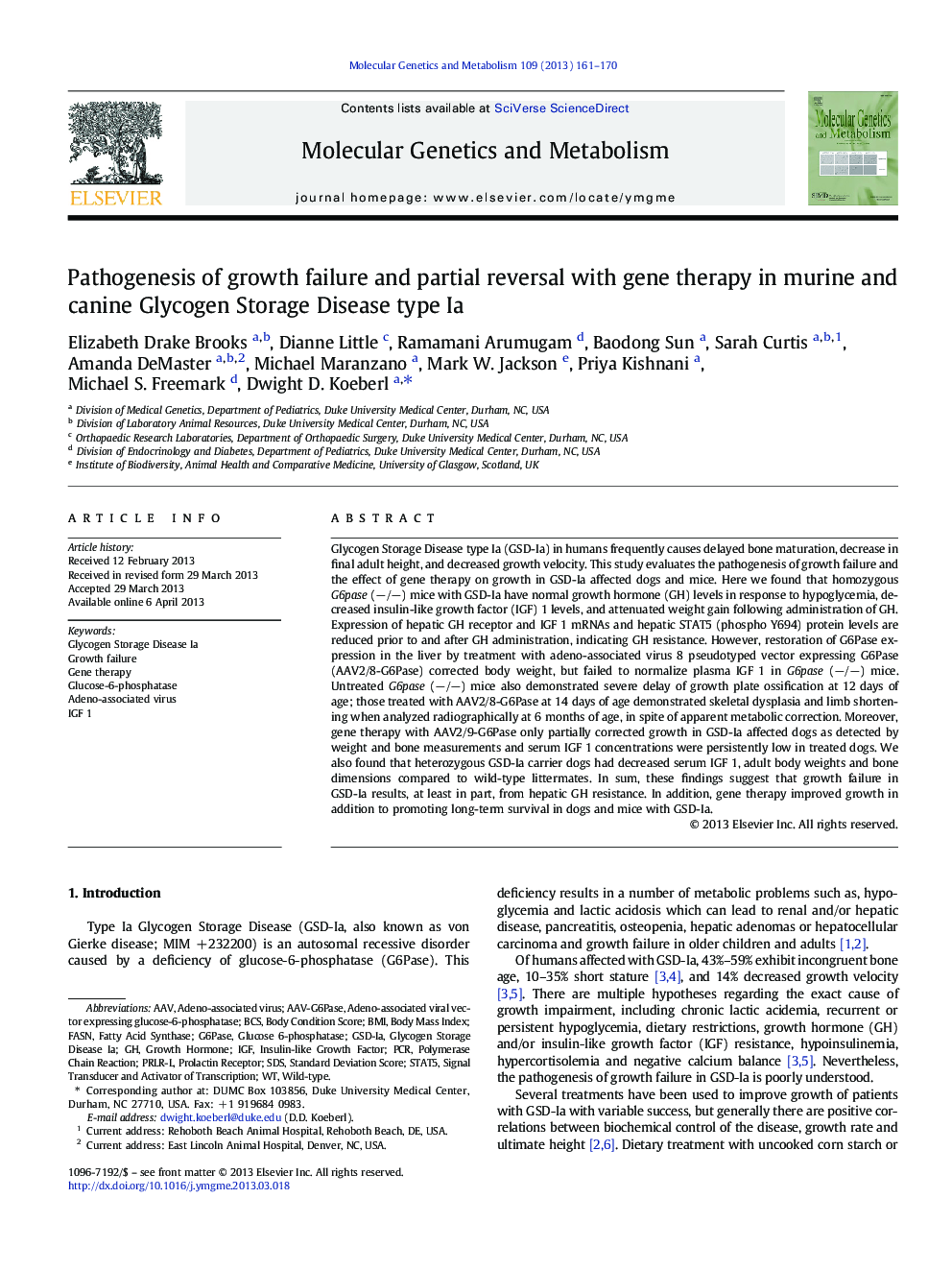| کد مقاله | کد نشریه | سال انتشار | مقاله انگلیسی | نسخه تمام متن |
|---|---|---|---|---|
| 10833000 | 1065780 | 2013 | 10 صفحه PDF | دانلود رایگان |
عنوان انگلیسی مقاله ISI
Pathogenesis of growth failure and partial reversal with gene therapy in murine and canine Glycogen Storage Disease type Ia
دانلود مقاله + سفارش ترجمه
دانلود مقاله ISI انگلیسی
رایگان برای ایرانیان
کلمات کلیدی
IGFSDSSTAT5G6PaseAAVfatty acid synthase - اسید چرب سنتازBCs - روند BCsbody mass index - شاخص توده بدنBMI - شاخص توده بدنیGrowth failure - شکست رشدInsulin-like growth factor - فاکتور رشد مانند انسولینFasn - فسادSignal transducer and activator of transcription - مبدل سیگنال و فعال کننده رونویسیStandard deviation score - نمره استاندارد انحرافBody condition score - نمره وضعیت بدنwild-type - نوع وحشیGrowth hormone - هورمون رشدpolymerase chain reaction - واکنش زنجیره ای پلیمرازPCR - واکنش زنجیرهٔ پلیمرازAdeno-associated virus - ویروس Adeno مرتبط استGene therapy - ژن درمانیglucose-6-phosphatase - گلوکز 6-فسفاتازglucose 6-phosphatase - گلوکز 6-فسفاتازprolactin receptor - گیرنده پرولاکتین
موضوعات مرتبط
علوم زیستی و بیوفناوری
بیوشیمی، ژنتیک و زیست شناسی مولکولی
زیست شیمی
پیش نمایش صفحه اول مقاله

چکیده انگلیسی
Glycogen Storage Disease type Ia (GSD-Ia) in humans frequently causes delayed bone maturation, decrease in final adult height, and decreased growth velocity. This study evaluates the pathogenesis of growth failure and the effect of gene therapy on growth in GSD-Ia affected dogs and mice. Here we found that homozygous G6pase (â/â) mice with GSD-Ia have normal growth hormone (GH) levels in response to hypoglycemia, decreased insulin-like growth factor (IGF) 1 levels, and attenuated weight gain following administration of GH. Expression of hepatic GH receptor and IGF 1 mRNAs and hepatic STAT5 (phospho Y694) protein levels are reduced prior to and after GH administration, indicating GH resistance. However, restoration of G6Pase expression in the liver by treatment with adeno-associated virus 8 pseudotyped vector expressing G6Pase (AAV2/8-G6Pase) corrected body weight, but failed to normalize plasma IGF 1 in G6pase (â/â) mice. Untreated G6pase (â/â) mice also demonstrated severe delay of growth plate ossification at 12Â days of age; those treated with AAV2/8-G6Pase at 14Â days of age demonstrated skeletal dysplasia and limb shortening when analyzed radiographically at 6Â months of age, in spite of apparent metabolic correction. Moreover, gene therapy with AAV2/9-G6Pase only partially corrected growth in GSD-Ia affected dogs as detected by weight and bone measurements and serum IGF 1 concentrations were persistently low in treated dogs. We also found that heterozygous GSD-Ia carrier dogs had decreased serum IGF 1, adult body weights and bone dimensions compared to wild-type littermates. In sum, these findings suggest that growth failure in GSD-Ia results, at least in part, from hepatic GH resistance. In addition, gene therapy improved growth in addition to promoting long-term survival in dogs and mice with GSD-Ia.
ناشر
Database: Elsevier - ScienceDirect (ساینس دایرکت)
Journal: Molecular Genetics and Metabolism - Volume 109, Issue 2, June 2013, Pages 161-170
Journal: Molecular Genetics and Metabolism - Volume 109, Issue 2, June 2013, Pages 161-170
نویسندگان
Elizabeth Drake Brooks, Dianne Little, Ramamani Arumugam, Baodong Sun, Sarah Curtis, Amanda DeMaster, Michael Maranzano, Mark W. Jackson, Priya Kishnani, Michael S. Freemark, Dwight D. Koeberl,